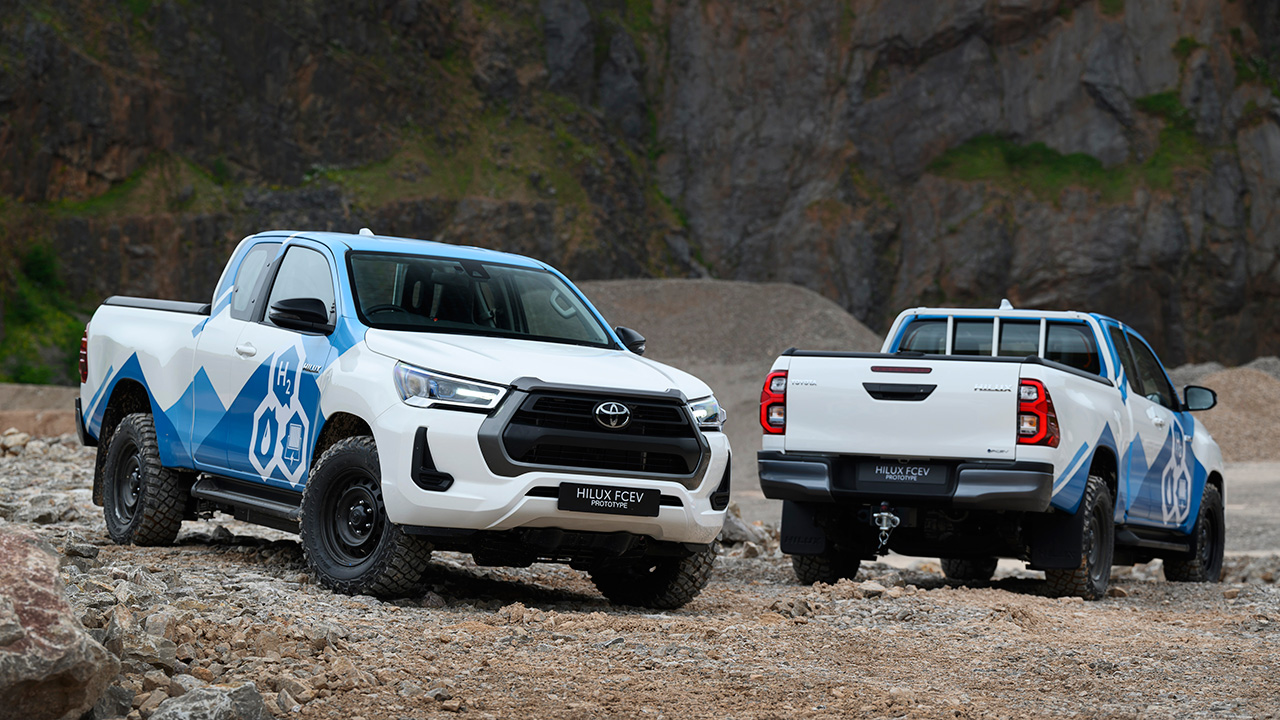A project to bring a hydrogen fuel cell Hilux pick-up truck to market has entered its next and final phase.
Since the unveiling of the first prototype vehicle in September 2023, a total of 10 fuel cell Hilux prototypes have now been built at the Toyota Motor Manufacturing UK (TMUK) plant in Derby, England. Five vehicles are undergoing rigorous field testing to assess safety, performance, functionality and durability, providing real-world driving data. Five additional units will be used for customer and media demonstrations, including at the upcoming Paris 2024 Olympic and Paralympic Games.
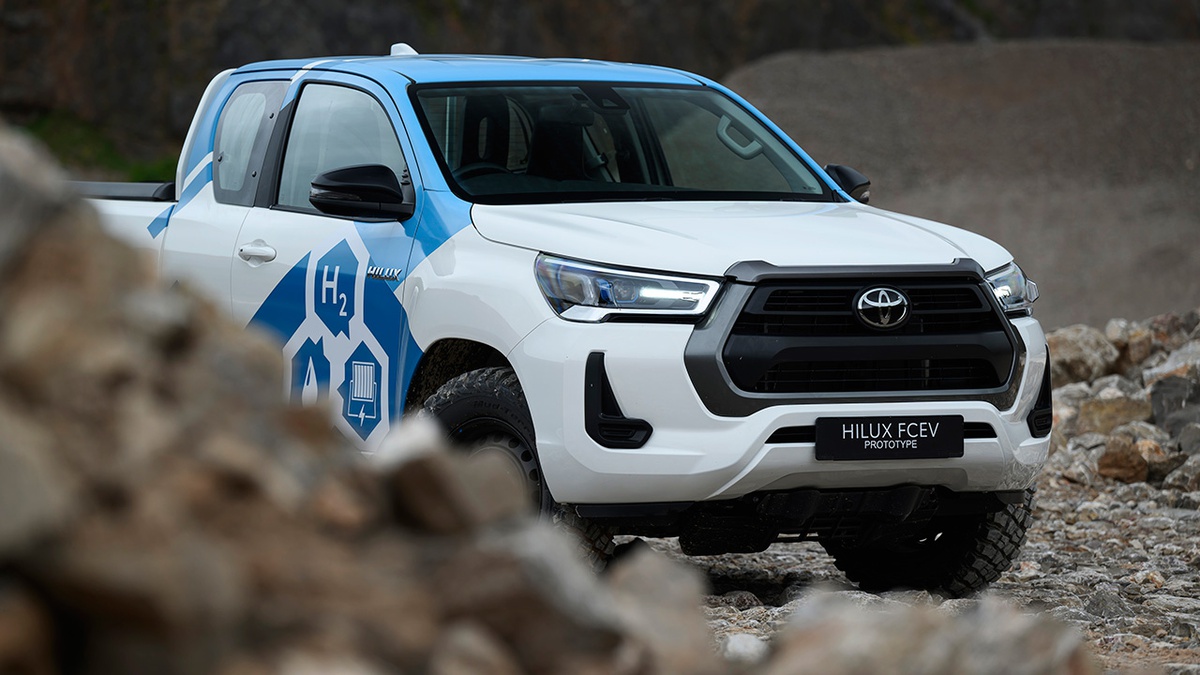
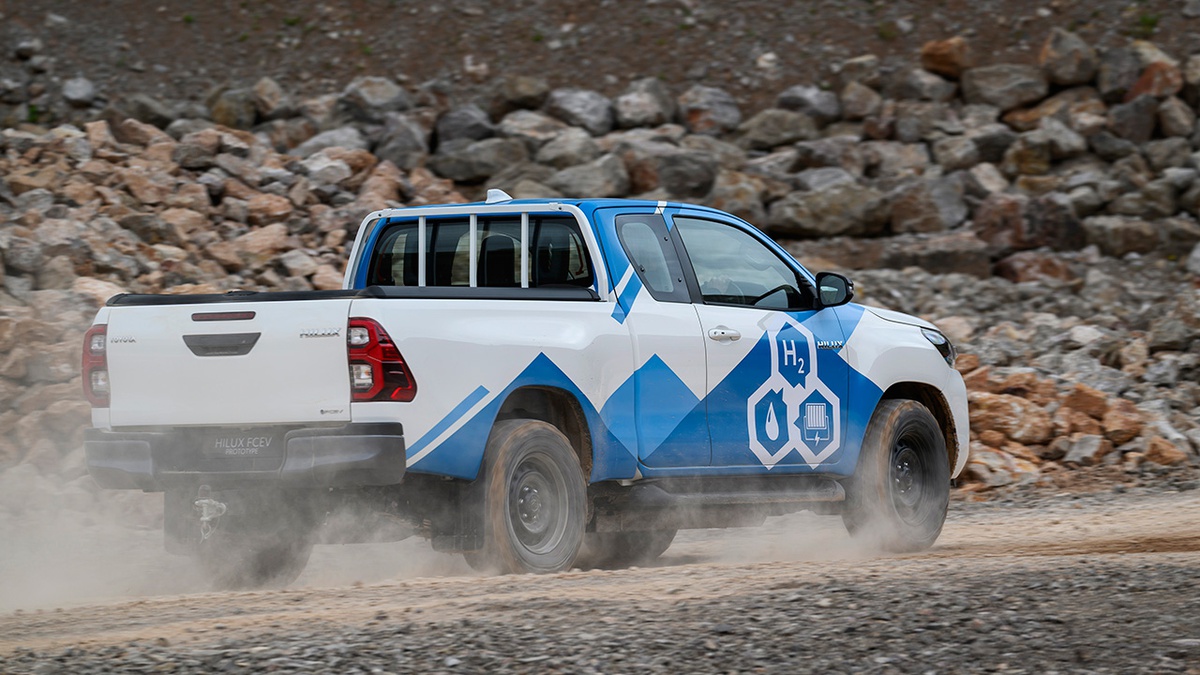
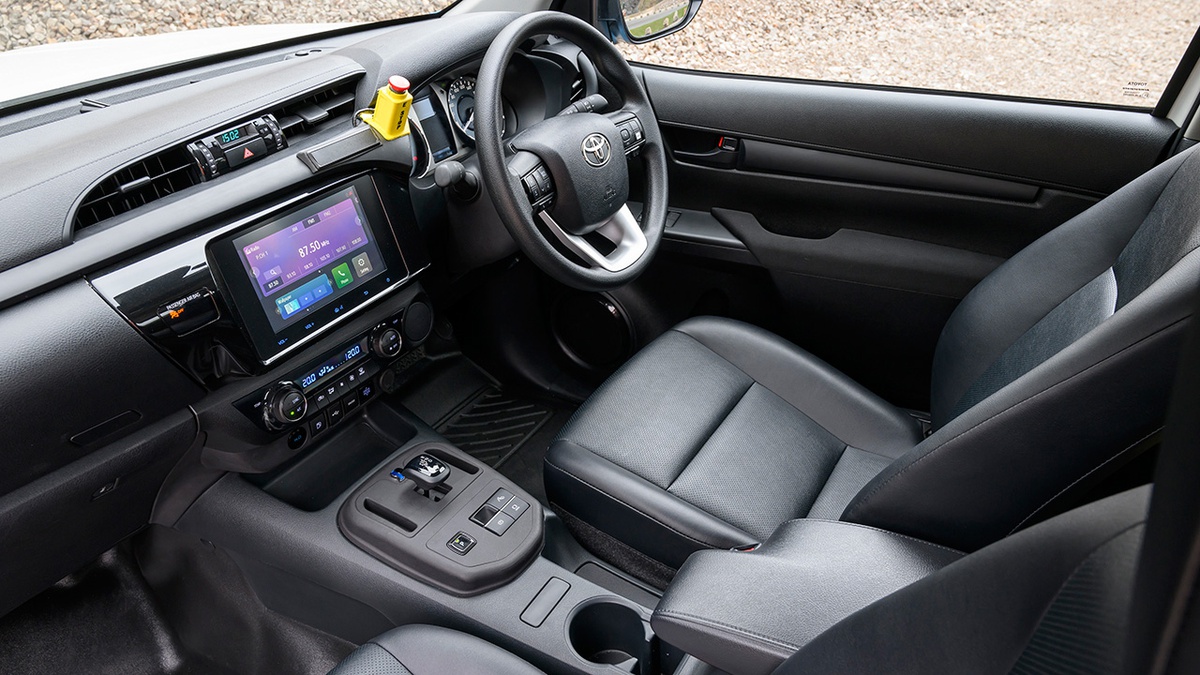
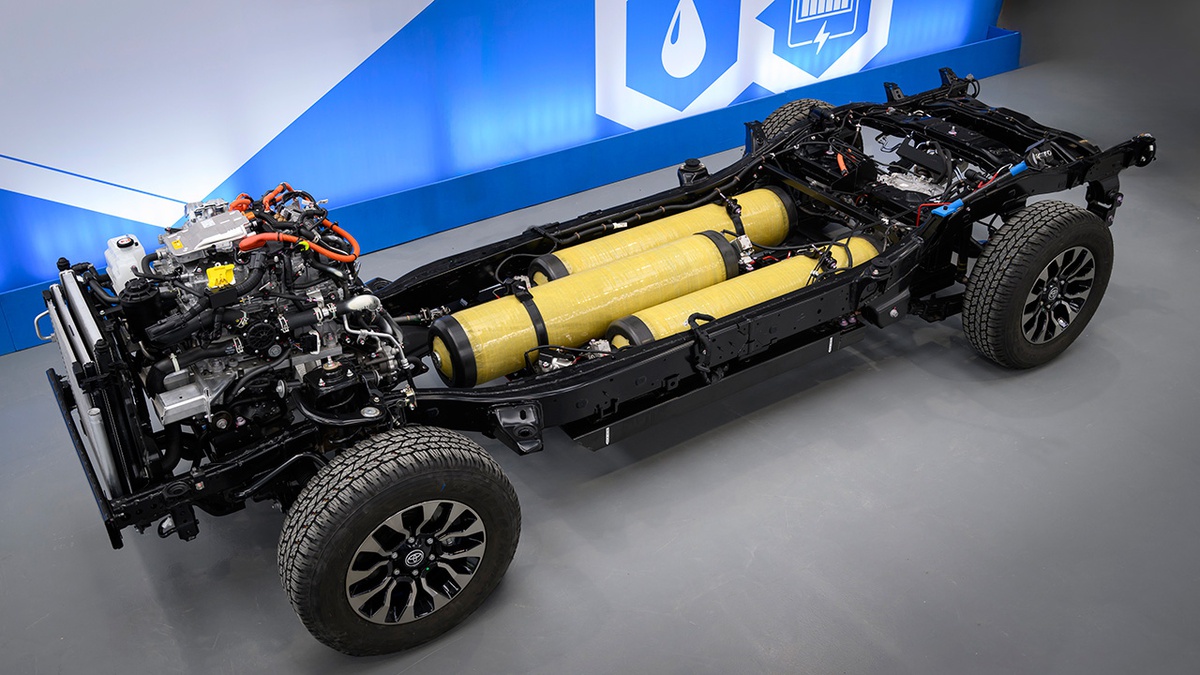
Fuel Cell Toyota Hilux
Externally, the Fuel Cell Hilux retains the same dimensions and appearance as the latest Hilux. It is 5325 mm long, 1855 mm wide and 1810 mm high, but beneath the surface lies Toyota's fuel cell technology.
Power is supplied by core elements from the mass-produced Toyota Mirai hydrogen fuel cell sedan. The fuel cell Hilux is expected to have a range of up to 600 km - further than a battery electric system can go. Meanwhile, the light weight of hydrogen enables higher payload and towing capacity compared to other zero-emission alternatives.
Hydrogen is stored in three 2.6 kg high-pressure fuel tanks for a total system capacity of 7.8 kg. The tanks are mounted inside the ladder frame chassis.
The polymer electrolyte fuel cell stack contains 330 cells and is mounted over the front axle. The fuel cell Hilux has rear-wheel drive via a rear-axle electric motor that delivers 134 kW (182 DIN hp) of maximum power and 300 Nm of maximum torque. During operation, the fuel cell produces no exhaust emissions, only water.
A lithium-ion hybrid battery, which stores the electricity produced by the fuel cell on board, is located in the rear cargo area above the hydrogen tanks. This avoids any loss of cabin space.
The fuel cell Hilux prototype project is an important stepping stone for the company to further develop hydrogen technology and stimulate the wider deployment of hydrogen ecosystems and infrastructure across Europe.
Source: Toyota
